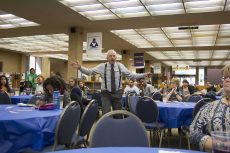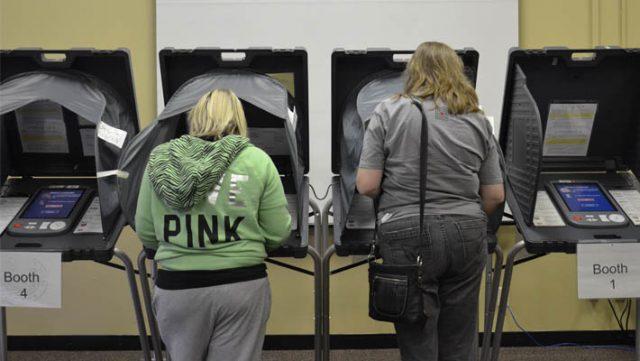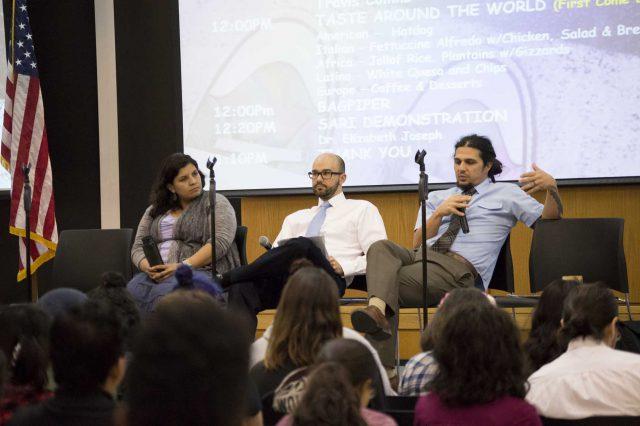By Jackie Stevenson/reporter

Kaylee Jensen/The Collegian
Four speakers participated in a panel discussion in the NE Campus library Oct. 20 about Tim O’Brien’s renowned Vietnam war story The Things They Carried.
The speakers discussed the book’s historical and literary content and made connections to veterans during the Vietnam War and veterans now.
NE English professor Rebecca Balcarcel delved into the book’s literary complexity.
“When I read the book, it helped me understand all that I could understand about being a soldier at the time,” she said.
Balcarcel believes O’Brien’s fictionalization of the Vietnam War helps readers understand a larger truth. Understanding the soldier’s experience is one of the most important lessons a reader can take from the book, she said.
“Two hundred men were dying each week,” said NE history professor Andrew Hollinger about the death toll of the Vietnam War.
Not only did he discuss the historical context surrounding the war, but he also shared his personal experiences. Hollinger was an officer in the Vietnam War and shared what it was like to be a young person involved in a war that few wanted to fight.
“If you didn’t go to college and didn’t have the connections to be placed in the reserves, then you went to war,” he said.
Many soldiers who fought came home traumatized from the events they witnessed. Today’s veterans are facing some of the same struggles.
NE graduate Angel Ayala was diagnosed with post-traumatic stress disorder after surviving an injury overseas while serving in the military.
He shared how the illness made him feel isolated and, as a result, began abusing drugs and alcohol, eventually ending up homeless.
“On average, 22 veterans commit suicide each day,” he said.
After completing a recovery program, Ayala went to get his master’s degree in psychology.
“I went into counseling because when I was heard for the first time, I wanted to do that for someone else,” he said.
David Bachelor also discussed the psychological effects of war on veterans. He is the director of Warrior Watch, a seven-day retreat for veterans with post-traumatic stress disorder.
Bachelor explained how The Things They Carried doesn’t just advocate for veterans.
“You don’t have to be a war veteran to relate to this book,” he said.
The event celebrated the National Endowment for the Arts’ Big Read program, which was created to educate the public on different works of literature.

























